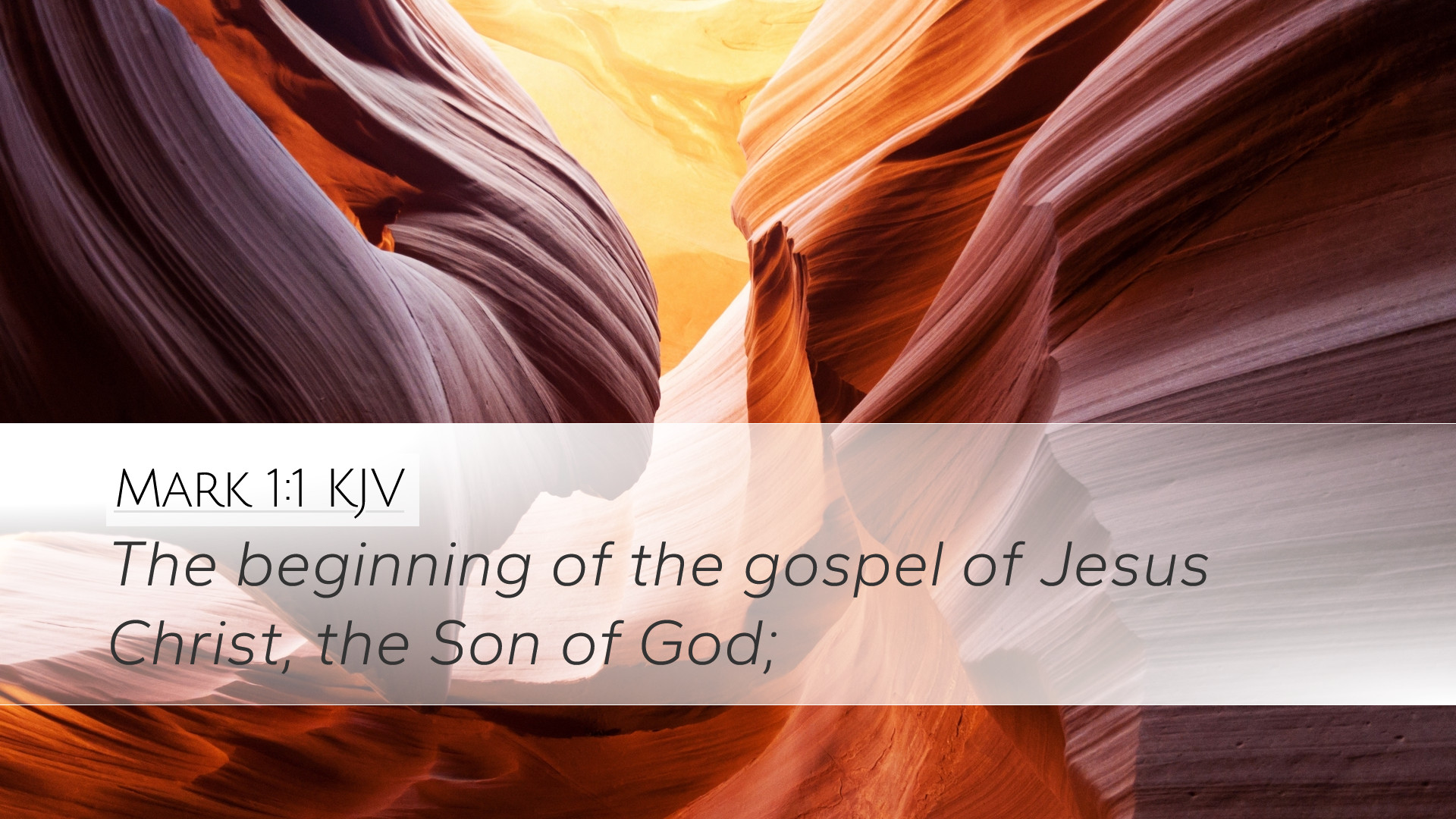Commentary on Mark 1:1
Mark 1:1 states: "The beginning of the gospel of Jesus Christ, the Son of God." This single verse serves as an introduction not just to the Gospel of Mark but also to the very essence of the Christian faith. The term 'gospel' signifies good news — news that is rooted in the life and teachings of Jesus Christ, who is referred to here as both 'Jesus' and 'the Son of God'. This opening verse sets the theological framework for understanding who Jesus is and what He represents.
Theological Significance
According to Matthew Henry, the use of the phrase "the beginning" indicates a new epoch in redemptive history. He notes that Mark emphasizes the initiation of Jesus' ministry rather than a chronological beginning, suggesting that this is the commencement of a transformative message that will affect mankind eternally. This new beginning aligns perfectly with the themes of renewal and redemption prevalent throughout Scripture.
Albert Barnes expands on the idea of 'gospel' by emphasizing that it signifies not merely the account of Jesus' life but embodies the very message He proclaimed. Barnes suggests that this 'gospel' is fundamentally focused on the atoning work of Christ, alluded to throughout the New Testament, and serves to emphasize the necessity of faith in Jesus for salvation.
Christ’s Identity
Mark's designation of Jesus as "the Son of God" is critically significant, as noted by Adam Clarke. Clarke outlines that this title affirms Jesus' divine nature and His unique relationship with the Father, a truth that underscores the Christian doctrine of the Trinity. This introduction not only clarifies Jesus' identity but also sets the stage for understanding His divine authority and the manner in which He, as the Son, perfectly reveals the nature of God.
Contextual Background
Mark writes to a predominantly Gentile audience, likely in Rome, as indicated by the stylistic and thematic elements throughout the Gospel. The phrase "the beginning of the gospel" can be seen as a farewell to Judaic laws and a call to embrace a new faith, open to all nations. Henry points out that by beginning the Gospel in this way, Mark is asserting that Jesus' message transcends cultural and geographic boundaries, presenting Him as the universal Savior.
Relation to Old Testament Prophecies
The opening verse directly connects to Isaiah’s prophecy regarding the forerunner who prepares the way for the Lord (Isaiah 40:3). Though not quoted in this exact verse, Mark's subsequent text recalls this prophecy. Thus, Mark establishes Jesus as the fulfillment of Old Testament prophecies, as Barnes emphasizes that understanding the Old Testament’s foreshadowing is essential for a comprehensive grasp of the New Testament revelation.
Importance for Christian Ministry
As ministers and theologians reflect upon this foundational verse, its implications for Christian ministry become clear. It calls for a focus on the central message of Jesus Christ. Henry argues that the essence of ministry should emanate from the proclamation of the gospel, pointing believers toward both the person and work of Christ. This not only provides a model for preaching but also serves as a foundation for discipleship and evangelism.
Conclusion
In conclusion, Mark 1:1 encapsulates profound theological truths, paving the way for the reader's understanding of Jesus Christ and His significance in salvation history. The insights drawn from public domain commentaries by respected theologians emphasize the necessity for deep reflection on the implications of this opening verse. As pastors, students, and scholars navigate the complexities of faith and ministry, Mark's declaration of "the beginning of the gospel of Jesus Christ, the Son of God" remains a timeless and transformative truth that continues to resonate with the core of Christian belief.


